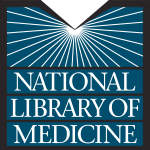- Industrie: Library & information science
- Number of terms: 152252
- Number of blossaries: 0
- Company Profile:
The National Library of Medicine (NLM), on the campus of the National Institutes of Health in Bethesda, Maryland, is the world's largest medical library. The Library collects materials and provides information and research services in all areas of biomedicine and health care.
Blood sugar. Glucose, the main source of fuel for the body, is formed when foods are broken down in the digestive system. After digestion, glucose is absorbed into the bloodstream and then used for cell growth and energy.
Industry:Health care
Breakdown or death of muscle tissue, often with release of muscle fiber contents into the bloodstream and sometimes leading to acute renal failure. Rhabdomyolysis may be caused by HIV infection, opportunistic infections, or some antiretroviral (ARV) drugs.
Industry:Health care
Calculi (stones) in the kidney. Use of some antiretroviral (ARV) drugs may cause nephrolithiasis.
Industry:Health care
Calculi (stones) in the urinary tract. Use of some antiretroviral (ARV) drugs may cause urolithiasis.
Industry:Health care
Care to alleviate the physical and psychological symptoms of disease or the undesirable effects of treatment. The goal of palliative care is not to cure disease but to make the person more comfortable and improve the person's quality of life. Palliative care may be given at any stage of a disease.
Industry:Health care
Causing a mutation, which is a permanent change in the genetic material of a cell or microorganism. A mutation may alter a trait or characteristic of a person or may cause disease. Mutations can be inherited or can occur spontaneously. Before being approved, drugs—including antiretroviral (ARV) drugs—are tested to assess their potential for mutagenic effects.
Industry:Health care
Causing breaks in chromosomes, which results in sections of a chromosome being deleted or rearranged. Before being approved, drugs—including antiretroviral (ARV) drugs—are tested to assess their potential for clastogenic effects.
Industry:Health care
Changes in lipid metabolism and body composition, including accumulation of fat (lipohypertrophy), loss of fat (lipoatrophy), and redistribution of fat. Use of some antiretroviral (ARV) drugs may cause lipodystrophy.
Industry:Health care
Changes in lipid metabolism and body composition, including accumulation of fat (lipohypertrophy), loss of fat (lipoatrophy), and redistribution of fat. Use of some antiretroviral (ARV) drugs may cause lipodystrophy.
Industry:Health care
